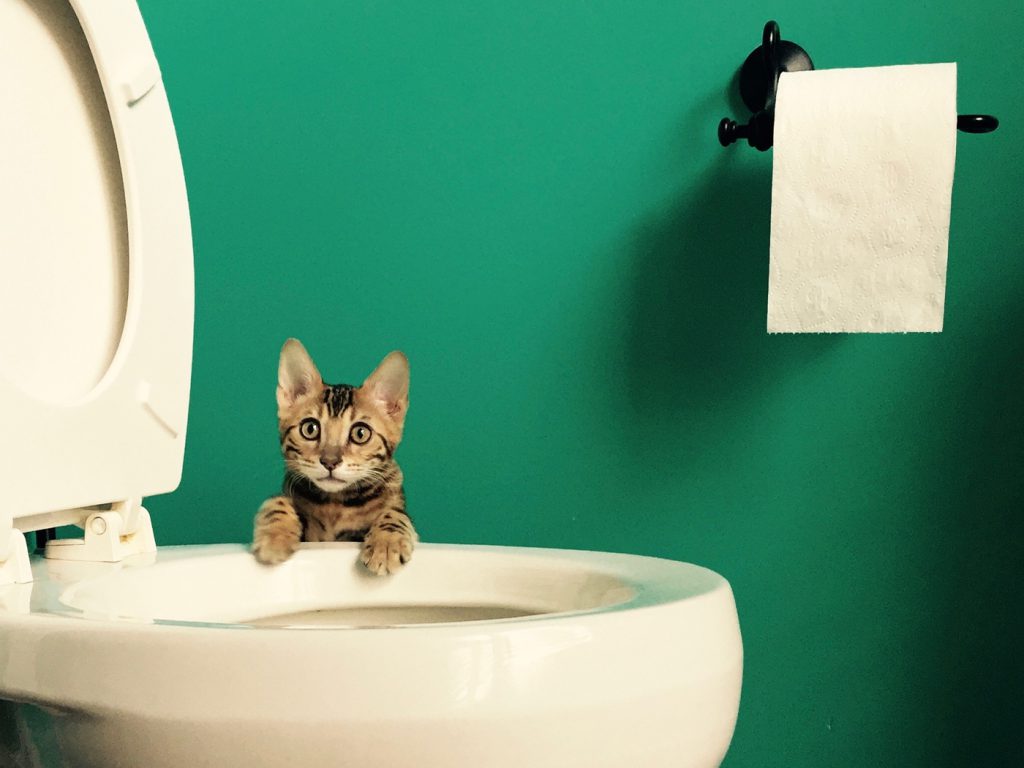What Your Poop Says About Your Health
Your number two is trying to talk to you. Here’s how to decode its message.

Fact #1: Everyone poops. It’s one of the most basic human functions.
Fact #2: Most people would rather not discuss it.
But here’s the thing: Your stool is actually a powerful indicator of how well your body’s systems are working. Aside from blood tests and magnetic resonance imaging (MRI) scans, your number two is the only real marker of what’s going on inside your gastrointestinal (GI) tract, says Shaista Safder, M.D., a gastroenterologist at Arnold Palmer Hospital Center for Digestive Health and Nutrition in Orlando, Florida.
What you see in the toilet can be affected by many factors, including diet, exercise, sleep, hydration, hormones, and medications, says Wesley Delbridge, R.D., a spokesperson for the Academy of Nutrition and Dietetics.
So from its color and shape to its size and smell, you might want to pay more attention to your poop before you flush it down. Here, experts share some of the most common ways your number two talks to you—and what to do about it.
If You’ve Got a Floater
Oil floats on water, so floaters are typically a sign that you’ve eaten a high-fat diet, Dr. Safder explains. However, in rare cases, it can signal that you have a gastrointestinal infection that’s keeping your body from absorbing fat properly, meaning it ends up in the toilet.
Call your doc if you’re concerned—or if you haven’t been eating fatty foods. He or she will likely ask for a stool sample to help determine if there’s more fat than there should be.
If It Looks Like Nuts
If your stool resembles hardened little nuts or is lumpy like a sausage, it means it’s been in your GI tract for a while and your body has had time to remove a lot of moisture. In other words, you’re constipated.
The main reasons for constipation: You’re not drinking enough water or eating enough fiber, Delbridge says. “The average adult needs 25 to 40 grams of fiber per day, but is only getting 15 grams,” he adds, which is probably why up to 42 million Americans have chronic constipation, according to the National Institute of Diabetes and Digestive and Kidney Diseases.
If you haven’t been eating a lot of fiber-rich foods (whole grains, legumes, fruits, and vegetables), add them to your diet gradually and drink plenty of water to minimize digestive distress. And if you have a difficult time getting enough fiber, talk to your doctor, who may recommend a supplement like Metamucil or Citrucel.
If Your Poop Has Blood in It
Blood in your stool could mean a few things. You may have pushed too hard and created a little tear in the lining of the anal wall, Dr. Safder says. Or maybe you have a hemorrhoid. In these cases, the blood is typically a bright red.
While bloody stool is usually no biggie, it could also be a sign of colon cancer. So if you notice blood in the toilet, particularly if it’s dark red, it’s best to ring your doctor.
If Your Poop Is Black
Your stool’s color generally comes from the pigments in food, which means if your poop is anything other than brown (such as maroon, orange, green, yellow, or blue), it’s probably from what you recently ate, Dr. Safder explains. But black poop could be the result of bleeding in your digestive tract, as blood in the digestive tract eventually turns black.
That said, it’s not uncommon for stool to turn black after taking iron supplements or an over-the-counter medicine like Pepto-Bismol. The tummy medicine has an active ingredient called bismuth, which combines with sulfur in the body to form a black compound, Dr. Safder explains. But as always, if you’re unsure, call your doc.
If Your Poop Is Pale
“Pale or white poop is another color I’m concerned about because it indicates a liver problem or bowel obstruction,” Dr. Safder says. Bile produced in the liver gives poop its brown color. So if the poop is essentially colorless, it means your liver isn’t doing its job, she says.
The other reason your poop might be pale: The bile duct is blocked with a stone or tumor, which means the bile is not able to reach the intestine and “color” the poop.
The bottom line: If your poop is pale, call your doctor right away.
If Your Poop Is Pencil-Thin
If your stool suddenly starts coming out as thin as a pencil, it might not be related to your diet at all. The bowel—and therefore bowel movements—can get really narrow with some kinds of colon and rectal cancers, Dr. Safder says.
If your poop is always on the thin side, there’s no need to freak out. The key here is a sudden change to super-thin stool. If you notice that, it’s best to call your doc.
Subscribe to our newsletter
It's quick and easy. You could be one of the 13 million people who are eligible.
Already a member? Click to discover our 15,000+ participating locations.
Follow Us
If It Smells Particularly Foul
It’s normal for your poop to have a somewhat unpleasant smell, thanks to the bacteria in the colon that breaks down your food. A worse-than-usual odor may mean that it’s been in your body longer because you’re constipated, in which case you need to incorporate more high-fiber foods and water into your diet.
Haven’t felt constipated? You could have an infection, in which case you should visit or call the doctor, Dr. Safder says. “If you notice right away that it smells foul, look inside the bowl for hidden blood because your doctor will definitely ask,” she adds.
If It Puddles in the Bowl
“The texture of your poop will tell you a lot,” Dr. Safder says. “For example, if your poop is loose and puddles in the bowl, it’s a result of a quick transit through the body.”
Water gets sucked out of stool as it travels through the GI tract. If it moves too fast, there’s no time for that to happen, she explains.
If the poop is very loose, it could be a sign of food sensitivity or even irritable bowel syndrome (IBS). That’s because if a food is irritating your digestive system, your body creates more mucus to help flush the culprit out of the body, making the poop more liquid.
Some common food intolerances include dairy, egg, soy, and gluten, Delbridge says. You may simply need a probiotic; visit a gastroenterologist to find out.
Give Your GI Tract a Boost!
If you don’t notice any signs of concern, that’s terrific—but you should still talk to your doctor about colorectal cancer screening if you’re 50 and older. Colorectal cancer screenings can catch cancer before it shows symptoms or even before precancerous tissues turn into cancer. There are different types of screenings, and your doctor can help you find one that works for you. Check with your health plan about benefits, and learn more about Medicare coverage here.
Take Your Favorite SilverSneakers Classes Online!
SilverSneakers members can access live fitness classes and wellness workshops through SilverSneakers LIVE. See the latest schedule and RSVP for classes here.
Not a member? If you have a Medicare Plan, it may include SilverSneakers—at no additional cost. Check your eligibility instantly here.




